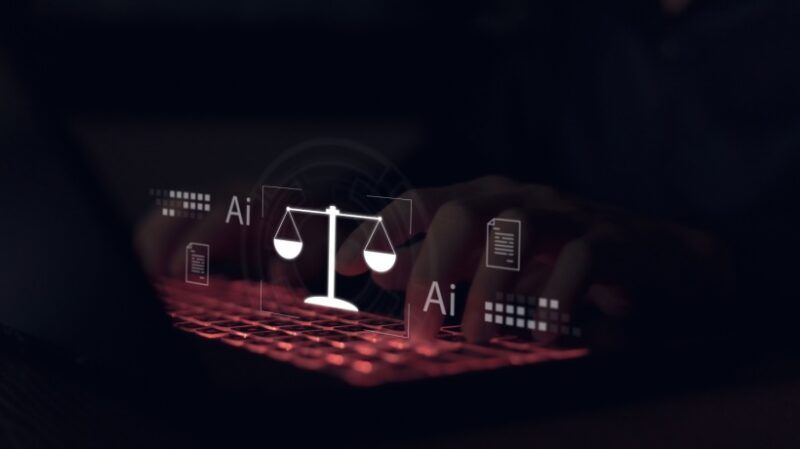
The AI Revolution In Education
With the increasing integration of Artificial Intelligence (AI) tools in educational settings, it is crucial for K-12 schools to establish clear policies regarding their use. A survey conducted by the EdWeek Research Center revealed that 79% of educators believe their districts lack proper guidelines for AI utilization. As AI continues to transform the education sector, developing an effective AI policy is essential to ensure responsible and ethical adoption.
What Is An AI Policy?
An AI policy outlines guidelines for the responsible and ethical use of AI technology. In an educational context, it establishes best practices for students, teachers, and staff to promote learning outcomes, uphold academic integrity, and protect privacy. These policies vary across school districts but generally include guiding principles, examples of appropriate and inappropriate use, consequences for violations, and more.
Why Do K-12 Schools Need An AI Policy?
Implementing an AI policy in K-12 schools serves several purposes:
1. Ensuring Responsible And Ethical Use Of AI
An AI policy prevents misuse or abuse of technology by providing clear guidelines on its appropriate use. It helps students and staff understand how AI should be utilized and establishes boundaries to prevent ethical and legal violations.
2. Promoting Academic Integrity
AI policies reinforce values of academic integrity by requiring students to produce original work, properly cite information from AI tools, and review content for accuracy.
3. Protecting Data Privacy And Security
AI tools often rely on sensitive data provided by students and staff, making data privacy a critical concern. An AI policy outlines what information should not be shared with AI systems and how data will be collected, stored, and used.
4. Educating Stakeholders About AI
As the use of AI tools in schools is expected to increase, it is essential to educate stakeholders about the benefits, risks, and limitations of AI technology. An AI policy can address these concerns and promote further education and training on AI.
The Difference Between AI Policies For K-12 Schools And Higher Education Institutions
While both K-12 schools and higher education institutions benefit from having AI policies, the focus and complexity of these policies differ. K-12 policies are more straightforward, emphasizing basic academic integrity values and simple use cases, while higher education policies are more comprehensive, addressing research implications and advanced ethical considerations.
Furthermore, K-12 policies anticipate high parental involvement and focus on educating younger students on responsible AI use, while higher education policies hold students to a higher level of accountability and impose more severe penalties for violations.
What Should An AI Policy Include?
An effective AI policy should include:
Definition Of AI
A clear definition of AI technology and its various applications, allowing students and staff to understand its appropriate use within educational contexts.
Appropriate And Inappropriate Use Of AI
Guidelines for using AI technology responsibly, including examples of acceptable and unacceptable use cases for students, teachers, and administrators.
Consequences Of Policy Violations
Details on how violations of the AI policy will be addressed, including disciplinary actions and consequences for ethical violations.
Data Privacy And Security Guidelines
Privacy guidelines for handling sensitive data, ensuring that student and staff information is protected when using AI tools.
Additional Resources
Links to supplementary resources that provide further education on AI technology, ethical considerations, and best practices for AI usage in education.
How To Develop An Effective AI Policy In 7 Steps
To develop a robust AI policy, K-12 education leaders can follow these steps:
1. Establish A Task Force
Assemble a group of stakeholders to craft an inclusive policy that addresses concerns and goals related to AI technology in education.
2. Survey Community Members
Gather insights from students, parents, and staff through surveys to understand their awareness, use, and expectations of AI technology.
3. Research Other AI Policies
Review existing AI policies from reputable sources to inform the content and scope of your school’s policy.
4. Draft A Policy
Develop a comprehensive AI policy based on stakeholder input, research findings, and school limitations, and undergo a thorough review process.
5. Edit, Finalize, And Share The Policy
Revise the policy based on feedback, finalize it, and communicate it to the educational community through various channels.
6. Educate Students And Staff
Provide workshops and lessons on AI technology to ensure responsible and ethical use among students and staff.
7. Monitor Results And Make Adjustments
Regularly review the AI policy, gather feedback, and update it to reflect changes in AI technology and address emerging issues.
AI Policies Are Essential To The Future Of K-12 Education
As AI technology becomes more prevalent in education, the development and implementation of AI policies are crucial for ensuring responsible and ethical use. By establishing clear guidelines and promoting AI literacy, K-12 schools can create a future where technology enhances education without compromising integrity and privacy.
Originally published at medium.com.



